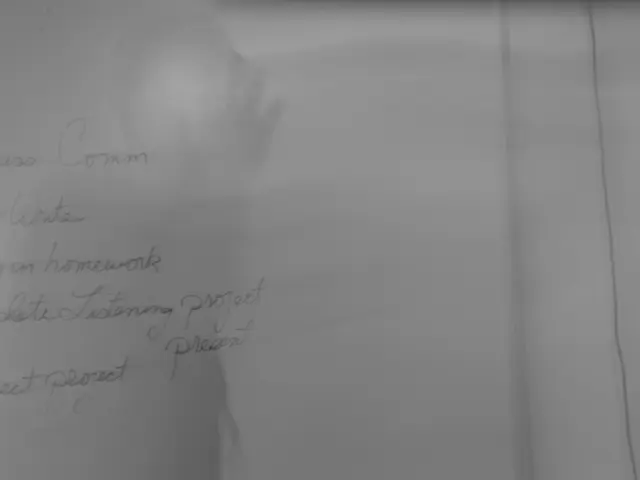Reducing Harmful Styrofoam Packaging: A Potential Solution Offered by 'RecyCoolers'
Chilling Shifts: The Rise of Eco-Friendly Shipping Coolers
As the world grapples with plastic pollution and global warming, a packaging company in California is turning heads with its innovative solution - the RecyCooler. These containers, made from recyclable paper and fibers, could revolutionize the transportation of temperature-sensitive goods like medication and lab reagents.
The introduction of RecyCoolers signifies a growing trend towards sustainable products, propelled by what insiders refer to as "extended producer responsibility" (EPR) laws. Over three dozen U.S. states have adopted EPR legislation, aiming to cut down on plastic and foam waste.
These laws require companies to take responsibility for their products' end-of-life, shifting the cost of disposal to the producers. With approximately 80 million tons of packaging trash discarded in the U.S. each year, only half of it recycled, and a mere 9% of plastic packaging being recycled, there's a pressing need for change.
EPR laws are designed to reduce landfill waste, boost recycling rates, and mitigate the environmental harm caused by non-recyclable materials. As a result, businesses are facing increasingly stringent packaging regulations that continue to evolve.
As of recently, seven states have enacted EPR legislation targeting packaging materials: California, Washington, New Jersey, Minnesota, Colorado, Oregon, and Maine.
According to Katherine Tellock, CEO of Chicago Environmentalists, "As the world heats up, it makes sense that there's a call for safe shipping options. It would be fantastic if they switched to completely recyclable items because that ultimately can be continually washed out and reused, and is almost always less environmentally impactful."
In light of this, a Gilroy, California-based company, Container Consulting Service (CCS), unveiled RecyCoolers last month. These containers, made from recyclable paper and fiber, have been third-party validated to meet ISTA Thermal and ISTA Transit standards, ensuring they can deliver pharmaceuticals safely.
While other companies offer eco-friendly shipping coolers, CCS claims its products perform as well as plastic ones thanks to its unique technology. The patented design uses open-cell woven or nonwoven paper fibers, allowing the containers to resist heat and keep contents cold for over 100 hours, making them suitable for long-haul and international shipments.
After reaching their destination, curbside-recyclable RecyCoolers can be transformed into other paper products. Say goodbye to polystyrene and hello to a greener future!
The potential impact of reusable shipping coolers is significant, research shows. Materials like polystyrene and polyethylene, common in most coolers, pose threats to humans and animals because they are not biodegradable. These materials pollute the environment, as they are lightweight and prone to fragmenting, with wildlife often ingesting microplastic particles. Plastic foam made with these components can last thousands of years, according to the United Nations Environment Programme.
"Polystyrene foam is particularly bad," says Janet Domenitz, executive director of Massachusetts Student Public Interest Research Group. "It is far more lightweight than most other types of plastic, making it all too easy for a gust of wind to blow it out of trash cans or landfills and into the environment."
Defenders of polystyrene argue that the material is more economical due to its lower weight, using less energy and water than paper or fiber-based alternatives. However, many U.S. lawmakers are considering bans on polystyrene products. Sen. Chris Van Hollen, D-Md., and Rep. Lloyd Doggett, D-Texas, have proposed the Farewell to Foam Act, aiming to phase out polystyrene products starting in 2028. California has already passed legislation requiring plastic and packaging companies to reduce single-use plastics, but its implementation remains uncertain.
The movement to drop plastic foam packaging is gaining traction globally, with dozens of countries, including Canada, Germany, and Zimbabwe, banning or restricting the use of Styrofoam, particularly in packaging and food service. RecyCoolers were designed to align with these developing regulations.
"The versatility of the product plays a key role in supporting our commitment to environmental responsibility," says Julie Yetter Simpson, co-owner of CCS. Yaniv Abitan, managing director at Insulpack Group, adds, "RecyCoolers is a signal where the industry is headed for domestic and international cold-chain shipping."
Together, EPR laws and innovative products like RecyCoolers are driving us towards a greener future, one shipping container at a time. 🌱🐠🚀
Fun Fact: Did you know that polystyrene foam can break down into tiny particles called microplastics, which can harm marine life? Yikes! 🐟🐆🐬 Let's help save our planet by choosing eco-friendly alternatives like RecyCoolers! 🌱🌍💚 🌱
The rise of eco-friendly shipping coolers like RecyCoolers aligns with the growing trend of environmental responsibility, driven by Extended Producer Responsibility (EPR) laws that aim to reduce plastic waste. As businesses grapple with stringent packaging regulations, investments in sustainable solutions such as RecyCoolers, which can be recycled and perform as well as plastic ones, become crucial for a greener future in finance and business, as well as for protecting the climate-change affected environment and promoting environmental-science advancements.









